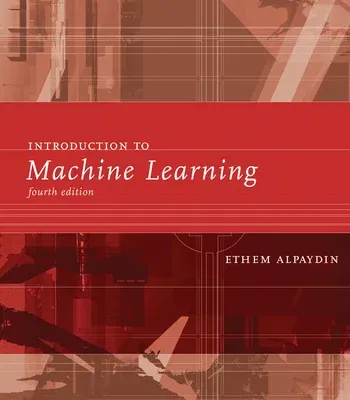A substantially revised fourth edition of a comprehensive textbook,
including new coverage of recent advances in deep learning and neural
networks.
The goal of machine learning is to program computers to use example data
or past experience to solve a given problem. Machine learning underlies
such exciting new technologies as self-driving cars, speech recognition,
and translation applications. This substantially revised fourth edition
of a comprehensive, widely used machine learning textbook offers new
coverage of recent advances in the field in both theory and practice,
including developments in deep learning and neural networks.
The book covers a broad array of topics not usually included in
introductory machine learning texts, including supervised learning,
Bayesian decision theory, parametric methods, semiparametric methods,
nonparametric methods, multivariate analysis, hidden Markov models,
reinforcement learning, kernel machines, graphical models, Bayesian
estimation, and statistical testing. The fourth edition offers a new
chapter on deep learning that discusses training, regularizing, and
structuring deep neural networks such as convolutional and generative
adversarial networks; new material in the chapter on reinforcement
learning that covers the use of deep networks, the policy gradient
methods, and deep reinforcement learning; new material in the chapter on
multilayer perceptrons on autoencoders and the word2vec network; and
discussion of a popular method of dimensionality reduction, t-SNE. New
appendixes offer background material on linear algebra and optimization.
End-of-chapter exercises help readers to apply concepts learned.
Introduction to Machine Learning can be used in courses for advanced
undergraduate and graduate students and as a reference for
professionals.

